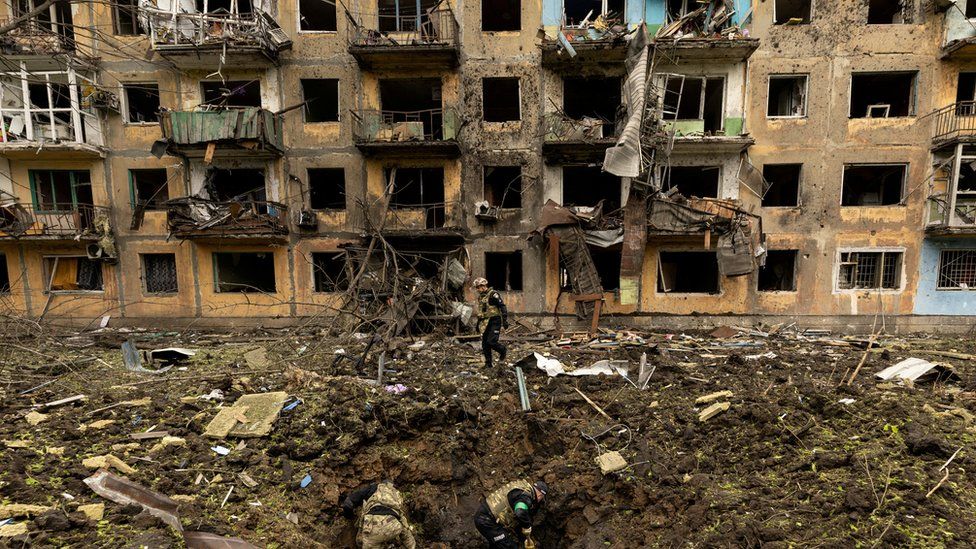ARTICLE AD BOX
By Frank Gardner
BBC security correspondent
 Image source, Reuters
Image source, Reuters
Ukrainian military inspect the site of a Russian missile strike in the Donetsk region
Russia's military could be unable to operate the high-tech weapons and communications systems it has been using in Ukraine if the West were to tighten export controls, says a report.
Almost all Moscow's modern military systems depend on western-made microelectronics, the report says.
Moscow has found ways to bypass sanctions and export controls.
If the loopholes could be closed, says Rusi, the report authors, Russia's military might be permanently degraded.
Image source, Reuters
Image caption,A Texas Instruments chip on a circuit board found inside a Russian 9M727 missile collected on the battlefield by Ukraine's military
Researchers for Rusi, the Royal United Services Institute, spent months in Ukraine, examining 27 of Russia's most modern military systems, either captured, brought down or abandoned by Russian troops.
They discovered at least 450 different kinds of unique, foreign-made components, most built in the US but also in other Western countries.
Products from familiar brands, like Sony and Texas Instruments, are turning up on the battlefield in Russian weapons systems. There is no suggestion those firms have been complicit in sending components to Russia.
Jack Watling, a senior research fellow at Rusi and one of the authors of the 60-page report, told the BBC there was a chance to permanently deny Russia access to these sensitive components - many of which are manufactured in the US, but also in Switzerland, the Netherlands, UK, Germany and France.
"If these components can be denied then the Russians will not be able to replenish the arsenal of equipment that they have expended in Ukraine," Dr Watling says.
He points to Russia's heavy reliance on artillery, missiles and rockets that have devastated the towns and villages of eastern Ukraine and allowed Russian ground forces to make slow, incremental advances through a shattered wasteland.
"The Russian system of fighting is largely dependent on what's called reconnaissance strike: finding your targets and then hitting them with overwhelming firepower," he says. "And what we found is that almost every link in that chain is dependent on Western components."
Image source, EPA
Image caption,Russian Orlan-10 drones can target artillery fire on enemy positions within minutes
Russia's fleet of battlefield drones, which scout out the locations of Ukrainian positions before they can be bombarded with artillery, also use imported microelectronics, cameras and communications systems. All are high-spec and many should be subject to export controls.
In order for long-range ballistic and cruise missiles to be accurate, says Dr Watling, they have to have Western-made microchips.
So how exactly has Russia been able to get its hands on these high-tech components?
It seems to have found several methods. A clandestine network has been in existence in some form since Soviet times. Operated by Russian intelligence officers it uses intermediate shipment hubs like Hong Kong and Malaysia.
In addition, some companies exporting these vital components are unaware of who the end user really is.
Others, says Dr Watling, prefer not to ask too many questions.
The report's authors believe time is running out to prevent new illicit pipelines being set up that will keep Russia's military supplied with these vital components.
In order to cut off what the report calls this "silicon lifeline" and permanently degrade Russia's ability to wage the kind of warfare it has in Ukraine, the West now has a unique window of opportunity to tighten export licence controls before it is too late.
Russia, it concludes, is scrambling to procure what it can in bulk before the net closes.
"The time to act is now," says the Rusi report.

 2 years ago
26
2 years ago
26








 English (US) ·
English (US) ·